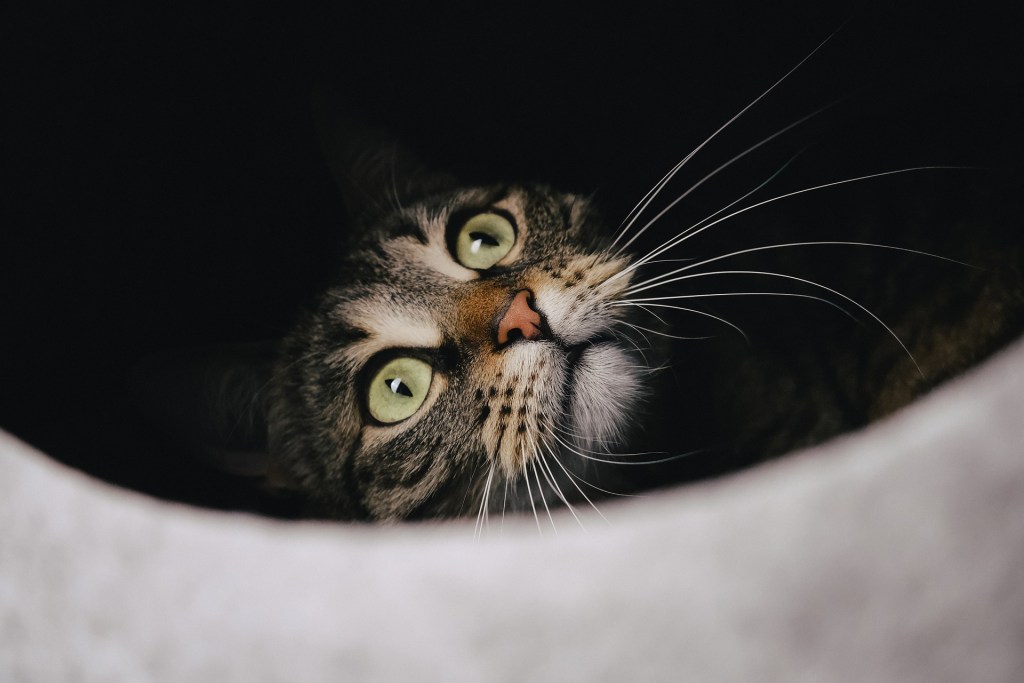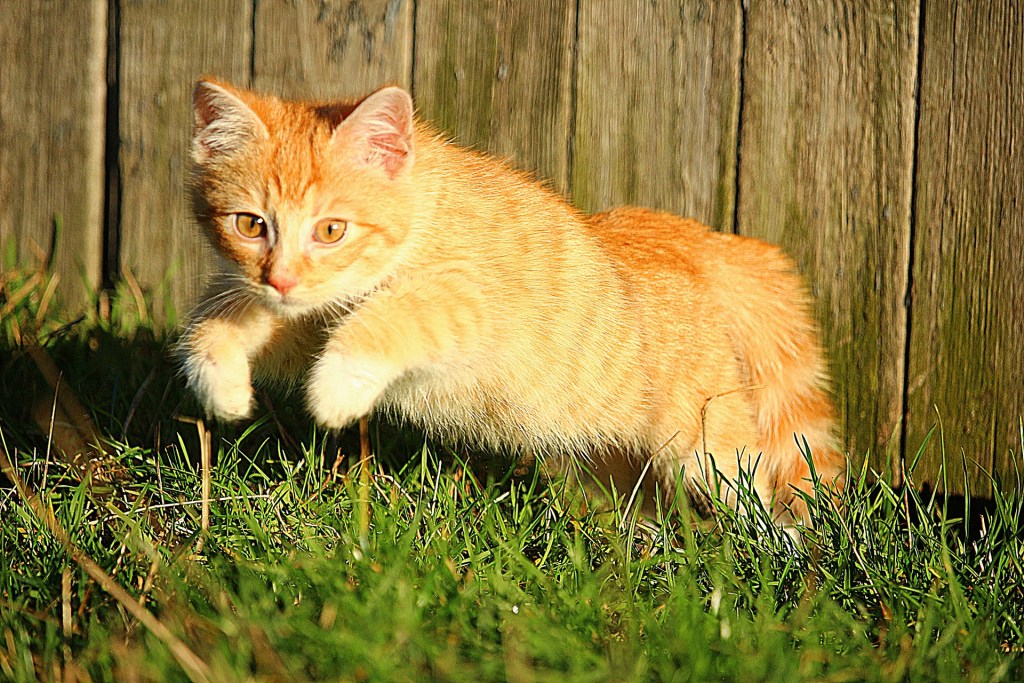Many cats spend large amounts of time lounging around the house, snoozing, or even cuddling up in your lap. But cats also have energetic periods too, and some cats can go a little crazy. Seeing your cat go tearing around the house, jumping onto furniture, and getting into all sorts of trouble can be a little alarming, especially if this behavior is atypical for your furry friend. And if your cat chooses, say, 1:00 a.m. to get a case of the crazies, he might wake you and your family up. Understanding how to calm a hyper cat safely can help you to get through these incidents, but it’s also important to get to the root of what may be causing your cat to go so wild.
Stay out of the way
If your cat is racing around your home, never try to physically restrain or calm him. This could lead to injury for you and your cat. Instead, let him run and play until he tires himself out.
When your cat is wound up, try to avoid anything that will encourage his behavior to continue. Don’t laugh or shout at him, and ask your family members to stay calm and to leave the cat alone. It may help to leave the room so your cat can’t feed off of your energy.
Once your cat is calm, it’s time to try to understand what’s motivating him to act this way.

Focus on safe ways to release excess energy
If your cat is exhibiting hyper behavior, he might simply need safe ways to burn off his excess energy appropriately. This behavior is more likely to occur with indoor cats because they have relatively limited space and opportunities to exercise. Your cat may be bored and have pent-up energy that he needs to unleash, and if he’s not receiving the stimulation that he requires during the day, that sprightliness might come out in crazy bursts.
For example, if your cat is hyper at night, think about how he’s spending his day. If you’re not home, your cat may be sleeping the hours away and storing up all of his enthusiasm until you return from work. Then, with you home and active at night, he might see it as prime time to run around, play, and act frisky.
Start by finding ways to encourage your cat to be more active. Get some cat toys and have play sessions together multiple times a day. There are also plenty of electrically powered toys that can entice your cat to play when you’re not home.
Look for ways that you can keep your cat entertained, too. Providing a cat tree can give your cat vertical climbing opportunities, while also granting him the ability to watch all of the activities going on both inside and outside of your home. Window perches and catios can also give your cat plenty of entertainment during the day, so he stays occupied and is less likely to go zooming through your home.
Identify any potential health issues
It’s also possible for health issues to cause this unruly behavior in cats. Dr. Joe Alcorn of the Care Animal Hospital writes that hyperactive cats can have hyperthyroidism. Cats with hyperthyroidism often display symptoms of weight loss, restless behavior, and even increased aggression. Some pets may urinate more frequently and drink extra water as a result.
If your cat suddenly develops increased hyperactive behavior, or if you notice any of these other symptoms, it is a good idea to schedule an appointment with your veterinarian. They can help to determine whether hyperthyroidism or any other health issues may be contributing to your cat’s behavior.

Work with professionals
In addition to your veterinarian, it may be helpful to work with a cat behaviorist. A professional behaviorist can help you to identify stresses in your cat’s life so that you can better understand why your cat is behaving the way he is. The behaviorist may have suggestions about lifestyle changes that you can make to help encourage your cat to relax.
Final thoughts on hyper cats
While behavior that’s out of the ordinary for your cat should always be investigated, remember that it’s also somewhat natural for cats to have brief periods of playfulness. Watch your cat to see if you can find patterns in his behavior, and experiment with increasing his playtime during the day to see if his hyperactive sessions decrease in frequency or duration. In many cases, a cat who is playing and racing through the house is doing what comes naturally to him, and he may just be having a good time. However, if that behavior turns destructive or dangerous, you’ll need to investigate what’s causing your cat to be so energetic in order to keep him safe.


